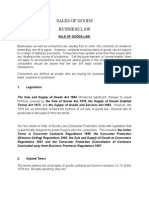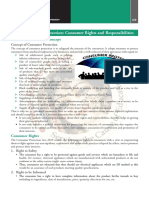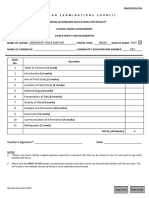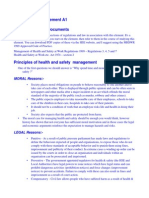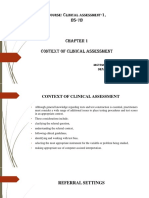0% found this document useful (0 votes)
42 views10 pagesResponsible Trader Booklet
The document discusses three key laws that regulate trade practices with consumers in Bermuda:
1. The Sale of Goods Act 1978 establishes that goods must conform to the sales contract by being of satisfactory quality, as described, and fit for their intended purpose. The seller, not the manufacturer, is responsible if goods do not meet the contract.
2. The Supply of Services Act 2003 requires that services be provided to a proper standard of workmanship within a reasonable time and for a reasonable charge. Failure to meet these obligations is a breach of contract.
3. The Consumer Protection Act 1999 protects consumers from unfair business practices and unsafe goods. It prohibits false or misleading representations about products or services. Non-compliance can result
Uploaded by
Vero SigotCopyright
© © All Rights Reserved
We take content rights seriously. If you suspect this is your content, claim it here.
Available Formats
Download as PDF, TXT or read online on Scribd
0% found this document useful (0 votes)
42 views10 pagesResponsible Trader Booklet
The document discusses three key laws that regulate trade practices with consumers in Bermuda:
1. The Sale of Goods Act 1978 establishes that goods must conform to the sales contract by being of satisfactory quality, as described, and fit for their intended purpose. The seller, not the manufacturer, is responsible if goods do not meet the contract.
2. The Supply of Services Act 2003 requires that services be provided to a proper standard of workmanship within a reasonable time and for a reasonable charge. Failure to meet these obligations is a breach of contract.
3. The Consumer Protection Act 1999 protects consumers from unfair business practices and unsafe goods. It prohibits false or misleading representations about products or services. Non-compliance can result
Uploaded by
Vero SigotCopyright
© © All Rights Reserved
We take content rights seriously. If you suspect this is your content, claim it here.
Available Formats
Download as PDF, TXT or read online on Scribd
/ 10

















